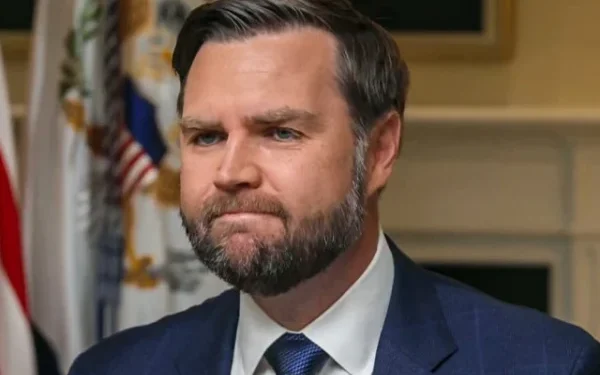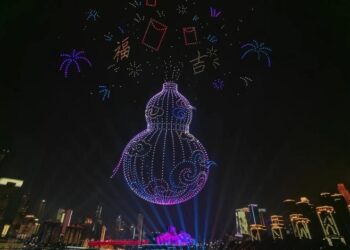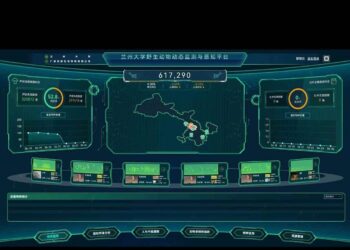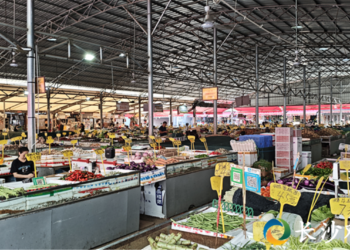In a significant development regarding the ongoing Russia-Ukraine conflict, US Vice President JD Vance has stated that Russia has made “important concessions” to end the war. Speaking in an interview on NBC’s popular program Meet the Press, Vance said that for the first time since the beginning of the war more than three and a half years ago, Moscow has shown flexibility on its main demands.
The statement comes at a time when global leaders, analysts, and citizens alike are closely watching for any breakthrough that could bring an end to one of the most devastating wars in Europe since World War II.
The War in Ukraine: A Brief Background
The Russia-Ukraine war, which began in February 2022, has caused massive destruction, displacement, and geopolitical turmoil.
- Russia launched what it called a “special military operation” aimed at “demilitarizing and denazifying” Ukraine.
- Ukraine, backed by Western allies, particularly the United States and NATO countries, has fiercely resisted Russian advances.
- The conflict has led to thousands of civilian deaths, millions of refugees, and extensive damage to Ukrainian infrastructure.
- The war also triggered a global economic crisis, particularly in energy and food supplies, as both Russia and Ukraine are major exporters of oil, gas, wheat, and corn.
Despite several rounds of diplomatic negotiations, most talks have failed due to Russia’s insistence on certain demands and Ukraine’s refusal to compromise on sovereignty.
JD Vance’s Statement: Russia’s Concessions
During his interview, Vice President JD Vance highlighted that Russia has made notable concessions that could pave the way toward ending the war.
Key Points from Vance’s Remarks:
- Territorial Integrity of Ukraine
- For the first time, Russia has acknowledged that Ukraine’s territorial integrity must be respected.
- This is a major shift from Moscow’s earlier stance, where it claimed sovereignty over annexed territories, including Crimea, Donetsk, Luhansk, Kherson, and Zaporizhzhia.
- No Puppet Government in Kiev
- Vance emphasized that Russia has recognized it cannot impose a puppet regime in Kiev.
- Early in the war, one of Russia’s key goals was believed to be the removal of Ukrainian President Volodymyr Zelensky and the establishment of a pro-Moscow administration.
- Security Guarantees for Ukraine
- Russia has acknowledged the importance of security guarantees for Ukraine.
- This could include international agreements ensuring Ukraine’s protection against future aggression, possibly involving NATO or neutral mediators.
- Russia Not Ready to Fully End the War
- While noting these concessions, Vance admitted that Russia is still not prepared for a complete withdrawal or a final settlement.
- The negotiations remain delicate, with several unresolved issues.
Sanctions and US Policy Toward Russia
Vice President Vance also touched on the issue of economic sanctions against Russia, which have been a cornerstone of Western pressure since 2022.
- He stated that further sanctions could be imposed, but decisions would be made on a case-by-case basis depending on Russia’s actions.
- Current sanctions target Russia’s banking system, energy exports, defense industry, and wealthy oligarchs close to President Vladimir Putin.
- Despite these measures, Russia has managed to maintain its war effort, largely due to its energy exports to Asia, particularly China and India.
Vance’s comments suggest that while the United States is open to diplomacy, it will also continue to use economic leverage to push Russia toward compliance.
Russia’s Response: Lavrov Defends Moscow’s Stance
In response to the remarks and criticisms from US lawmakers, Russian Foreign Minister Sergei Lavrov issued a statement.
- Lavrov reiterated that Russia respects US President Donald Trump because “he stands up for American interests.”
- He dismissed claims that Russia is acting out of desperation, instead framing Moscow’s actions as strategic and rational.
- Lavrov’s comments reflect Russia’s attempt to show strength and resilience, even as it faces international isolation.
The Role of President Trump in Negotiations
One of the most interesting aspects of Vance’s statement was his reference to President Donald Trump, who returned to office amid promises to “end the war in Ukraine within 24 hours.”
- Trump has long criticized the Biden administration’s policy of providing billions in military aid to Ukraine, arguing that it prolongs the conflict.
- His administration appears to be pursuing a more direct negotiation strategy, pressuring both Kyiv and Moscow to make compromises.
- Vance suggested that Russia’s willingness to soften its stance may be partly due to Trump’s hardline approach and unpredictable negotiation style.
Why Russia May Be Softening Its Position
Several factors may explain why Russia is showing greater flexibility now:
- War Fatigue
- The war has dragged on for more than three and a half years, draining resources and manpower.
- Russian casualties are estimated in the hundreds of thousands, according to Western intelligence.
- Economic Pressure
- Sanctions have restricted Russia’s access to Western technology, financial markets, and investments.
- Although Russia has pivoted to Asian markets, its economy faces long-term structural challenges.
- Military Stalemate
- Neither side has achieved a decisive victory.
- Ukraine’s counteroffensives have slowed, but Russia has also failed to capture major new territories.
- International Isolation
- Russia faces growing diplomatic isolation, with even some of its traditional partners urging peace talks.
Ukraine’s Position: What Does This Mean for Kyiv?
While the US Vice President highlighted Russia’s concessions, Ukraine’s position remains central to any peace deal.
- President Volodymyr Zelensky has repeatedly stated that Ukraine will not compromise on sovereignty or territorial integrity.
- Kyiv demands the withdrawal of Russian forces from all occupied territories, including Crimea.
- Ukraine also seeks firm security guarantees, possibly through NATO membership or alternative defense pacts.
It remains unclear whether Ukraine would accept a deal that falls short of these goals, even if Russia shows flexibility.
Global Reactions and Geopolitical Implications
The possibility of Russia softening its stance has drawn global attention:
- European Union (EU): Leaders welcomed the news cautiously but insisted that Ukraine must decide the terms of peace.
- China and India: Both nations, which have maintained ties with Moscow, may play a role as potential mediators.
- NATO: The alliance continues to support Ukraine militarily and diplomatically, while exploring possible frameworks for post-war security guarantees.
If negotiations progress, the conflict could mark a turning point in global geopolitics, reshaping relations between the West, Russia, and emerging powers.
Challenges Ahead for Peace Talks
Despite the optimism, several major obstacles remain:
- Territorial Disputes – Russia still controls large parts of eastern Ukraine.
- War Crimes Allegations – Ukraine and Western nations accuse Russia of atrocities, complicating negotiations.
- Trust Deficit – Years of broken agreements, such as the Minsk Accords, make both sides skeptical.
- Domestic Politics – Both Putin and Zelensky face pressure from hardliners not to compromise.
Without resolving these issues, any peace framework could remain fragile.
Conclusion: A Glimmer of Hope Amid Ongoing Conflict
The remarks by US Vice President JD Vance about Russia’s concessions provide a rare glimmer of hope in an otherwise grim and prolonged conflict. While Moscow’s acknowledgment of Ukraine’s territorial integrity, sovereignty, and need for security guarantees is a positive step, the road to peace remains long and uncertain.
For Ukraine, the priority remains full sovereignty and independence. For Russia, the challenge is to find an exit strategy without appearing defeated. For the United States and its allies, the task is to balance diplomacy with deterrence.
As the world watches closely, one thing is clear: any lasting peace must be based on justice, security, and respect for international law. The next few months could prove decisive in shaping the outcome of a war that has already changed the global order.

























